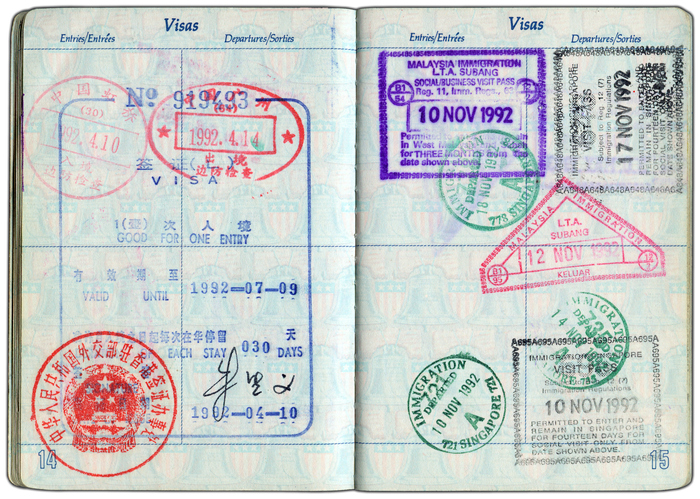There might be some truth to the common adage that the world is now a global village, however, the territorial sovereignty of a nation enables it to among other things, subject entry into and exit from its borders to terms and conditions. Generally, there are 4 (four) types of visas commonly issued in Nigeria to wit: tourist visas, business visas, temporary work permits, and subject-to-regularisation visas. Foreigners are usually issued visas, work, or residence permits depending on their purpose of entry into Nigeria. Unlike citizens, a foreigner’s right to remain in Nigeria for work or visit as the case may be is not permanent and can be reviewed/ withdrawn.
The right to revoke a work permit issued to a foreigner was tested in the SEPLAT Energy CEO, Roger Brown’s recent experience in Nigeria. Mr. Roger T. Brown was reportedly appointed as the CEO of Seplat in 2020 after he joined SEPLAT Energy in 2013 as its Chief Financial Officer (CFO). However, barely 3(three) years of his assumption of office, on March 3, 2023, the Minister of Internal Affairs, Ogbeni Rauf Aregbesola, wrote to the Board Chairman of Seplat Energy Plc accusing Mr. Brown of allegations of racism, and discrimination against Nigerian employees amongst others. The notification was done to the Board of Seplat Energy Plc in their capacity as Mr. Brown’s employer and as an applicant for the Expatriate Quota. It appears the stakeholders had tried to seek all necessary mediums to get redress. This is because apart from the Petition to the Ministry of Interior, which occasioned the Ministry’s intervention, there was also a suit by aggrieved stakeholders of the company filed at Federal High Court, Lagos against him[I]
ALSO READ: HOW TO GET AN EXPATRIATE QUOTA IN NIGERIA
It was widely reported[ii] that the Minister and by extension the Nigerian Federal Government based on a petition filed by the Nigerian Staff of SEPLAT Energy accused Brown of being in possession of a Combined Expatriate Residence Permit and Aliens Card (CERPAC) which violated its Expatriate Quota (EQ). In consideration of these charges, it was resolved that Brown’s continued stay in Nigeria was contrary to the national interest, and his immigration documents were consequently revoked. The question of the right of Mr. Brown comes to mind intuitively, however, it was reported that the invitation sent to him was never honored.
The decision to revoke his visa, work, and residence permit is well within the rights of the Federal Government as the Immigration Act[iii] recognizes the power to revoke or otherwise vary the terms of an already issued Permit in the interest of the Public. The incidence of revocation of work permits is not new as Nigerians abroad[iv] have also had their work permits revoked by their host countries for different reasons.
ALSO READ: SALVAGING FOREIGNERS FROM LOSS OF BUSINESS IN NIGERIA: A LEGAL PERSPECTIVE.
The above case study brings to bear the subject of CERPAC as well as EQ and the importance of strict compliance with the same as regulated by the Nigerian Immigration Service by virtue of the Immigration Act, 2015. Understandably, EQ is issued by the Federal Ministry of Interior on behalf of the Federal Government of Nigeria. The EQ is processed by a company looking to hire foreigners to work and live in Nigeria. It is also applicable to any foreigner who is a director or an owner of a registered business in Nigeria and is willing to obtain residency status in Nigeria. The Federal Ministry of Interior currently allocates a 3(three) year quota for expatriates. A renewal application can be submitted, however, it is advised that such an application be made timely and sought before the expiration of the EQ.
Generally, after a successful application for EQ, the company can proceed to process a Subject to Regularization (STR) Visa for its expatriates. This will give the foreigner the opportunity to process and obtain the CERPAC that allows them to live and work in Nigeria[v].
ALSO READ: REQUIREMENTS FOR OPENING A BANK ACCOUNT AS A FOREIGNER IN NIGERIA
Without a doubt, the above case principally recognizes 4 (four) stakeholders, the foreign employee, the employer (foreign or local), local employees, and the Federal Government. Each of them has its rights, obligations, and limitations to engage with respect to the employment of foreign nationals in Nigeria. Employers particularly must make sure there are strict codes of conducts for their staff, particularly, foreign nationals so that the huge investment doled into the application for necessary immigration documents is fully realized, and the operations of their company are not negatively impacted.
[i] Suit no FHC/L/402/2023
[ii] The Guardian Newspaper, https://guardian.ng/news/nigeria-revokes-visa-work-permit-of-seplat-ceo-roger-brown-over-racism/ accessed on 15/3/2023. See also the Punch Newspaper https://punchng.com/visa-revocation-seplat-ceo-quits-coo-takes-over/ accessed on 20/3/2023, Business Day Newspaper https://businessday.ng/news/article/roger-brown-seplat-ceos-work-permit-visa-revoked-over-racism-others/ accessed on 20/3/2023, amongst others.
[iii] Section 39(1)
[iv] Nigerians in UAE recently suffered this fate. See https://www.icirnigeria.org/uae-work-permit-nigerians-appeal-to-host-country-over-300-jobs-loss/ accessed on 21/03/2021
[v] For a detailed discourse on how to obtain Expatriate Quota in Nigeria, kindly read another article by our Senior Associate Mrs. Olawunmi Ojo published at https://trustedadvisorslaw.com/how-to-get-an-expatriate-quota-in-nigeria/
Written by Deborah Onafadeji for The Trusted Advisors
Email us: [email protected]

